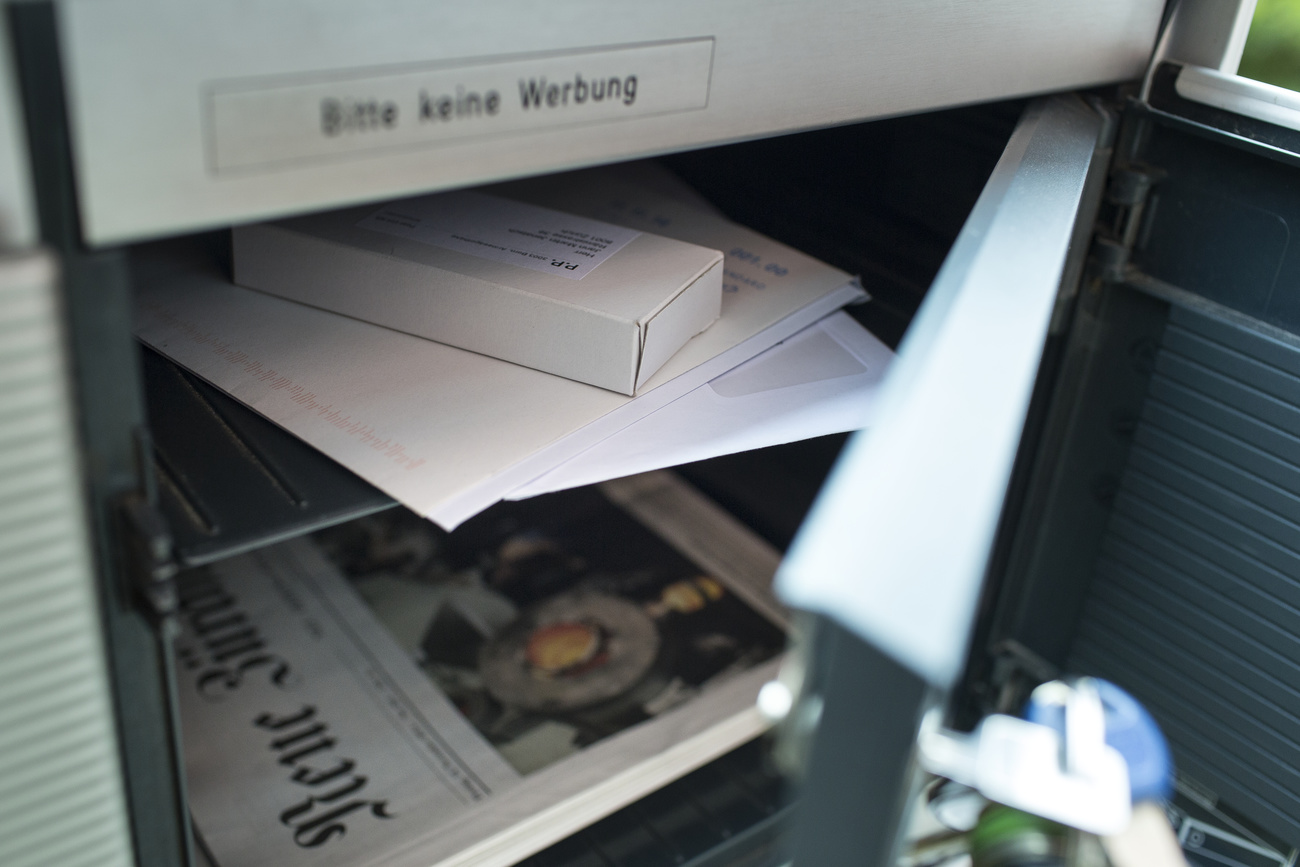
Iodine tablets sent to five million people in Switzerland

On behalf of the army pharmacy, Swiss Post is distributing iodine tablets to all households, businesses and public institutions within a 50-kilometre radius of Swiss nuclear power plants. However, anyone over 45 is advised not to take the tablets.
A total of 779 Swiss municipalities are being supplied with the tablets, spread over 12 cantons. Experience has shown that the iodine tablets are particularly effective for people up to 45 years of age and could protect children as young as two months from thyroid cancer, the Federal Office of Public Health (FOPH) told the media on Tuesday.
The risk of developing thyroid cancer decreases sharply with age. According to the FOPH, possible side effects of iodine tablets thus become more significant. At the same time, the risk of serious side effects increases with age, for example for thyroid hyperfunction triggered by iodine.
+ Survey says Swiss lack knowledge about iodine tablets
Iodine tablets would have to be taken if there were an accident at a nuclear power plant with radiation leakage. The authorities would inform people of the right time to take the tablets with potassium iodide in case of an emergency.
Old tablets are recycled
The new iodine tablets replace the packs distributed in 2014. These can be dispensed in small quantities of up to ten at all pharmacies, said Pierre-André von Zeerleder, head of the army pharmacy. The old tablets, which will soon expire, will be recycled and the iodine recovered for other uses.
Because the Mühleberg nuclear power plant has been shut down since the last distribution campaign, the distribution area has been reduced. The active nuclear power plants in Switzerland are located in Gösgen (Solothurn), Döttingen and Leibstadt (Aargau).
This news story has been written and carefully fact-checked by an external editorial team. At SWI swissinfo.ch we select the most relevant news for an international audience and use automatic translation tools such as DeepL to translate it into English. Providing you with automatically translated news gives us the time to write more in-depth articles. You can find them here.
If you want to know more about how we work, have a look here, and if you have feedback on this news story please write to english@swissinfo.ch.

In compliance with the JTI standards
More: SWI swissinfo.ch certified by the Journalism Trust Initiative





























You can find an overview of ongoing debates with our journalists here . Please join us!
If you want to start a conversation about a topic raised in this article or want to report factual errors, email us at english@swissinfo.ch.